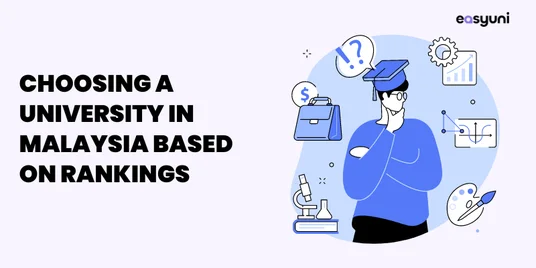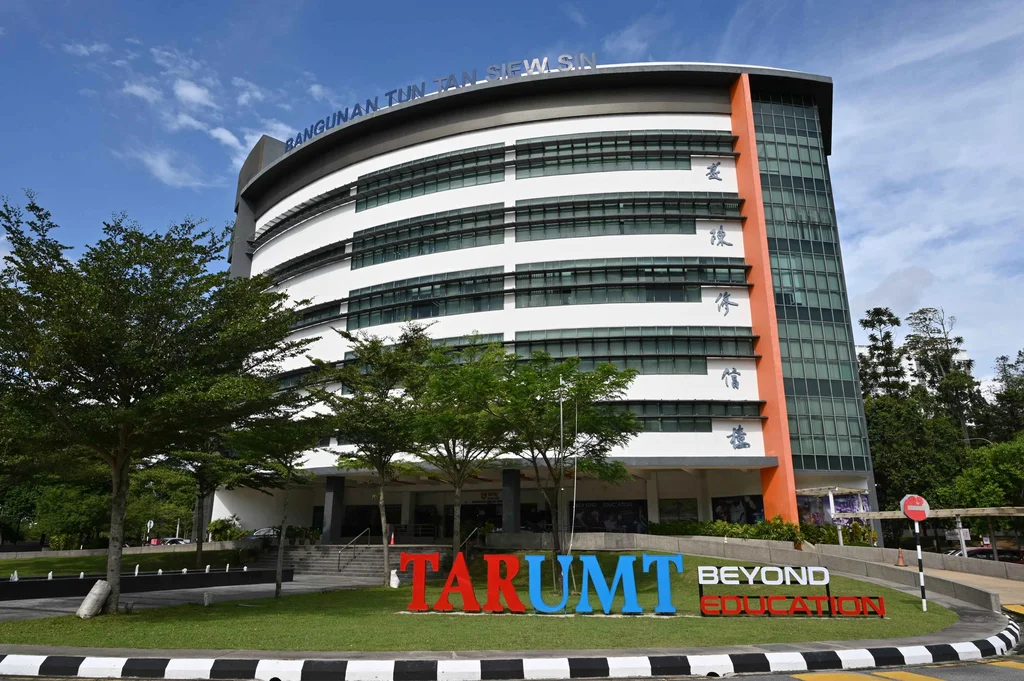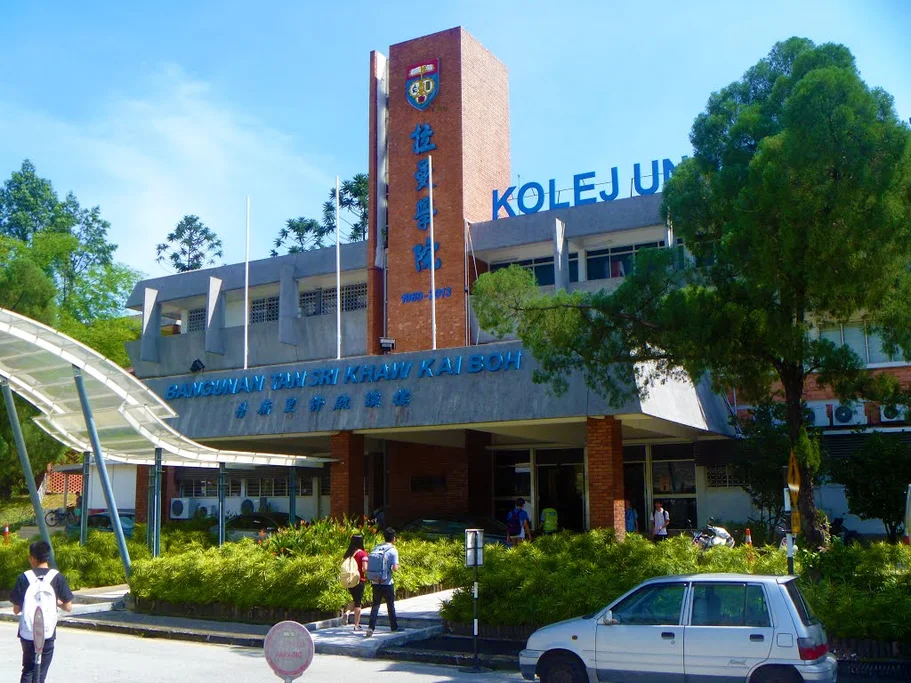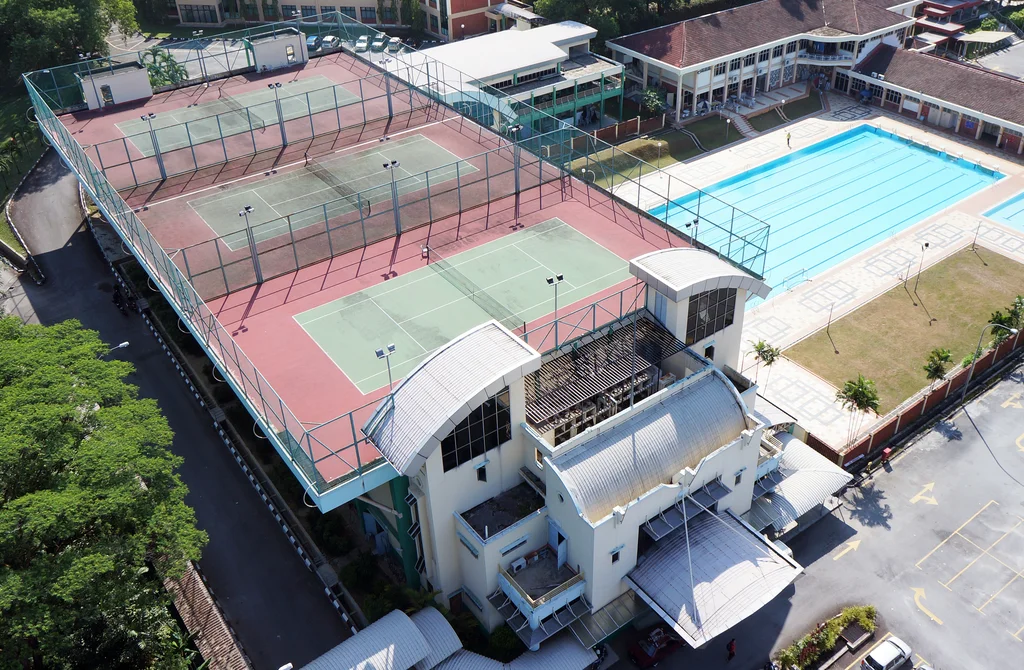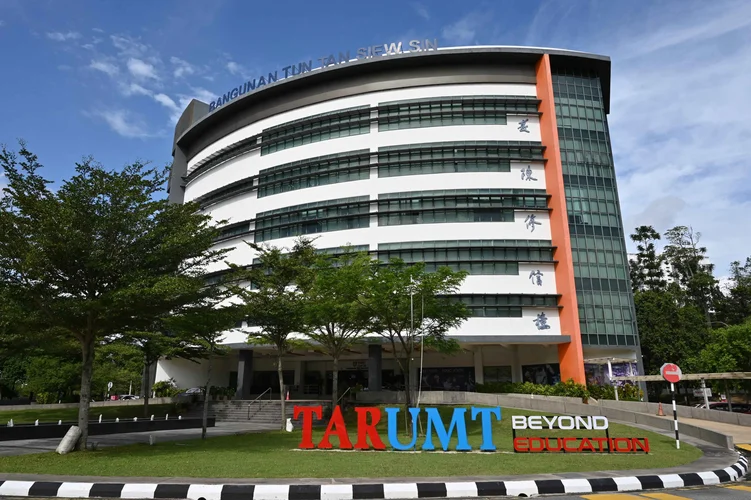

Tunku Abdul Rahman University of Management and Technology (TAR UMT)
WP Kuala Lumpur, Malaysia
universities with courses in Business and Management
-
-
Asia Pacific University of Technology and Innovation (APU)
Kuala Lumpur, Malaysia
-
University of Cyberjaya (UoC)
Malaysia
-
Sunway University
Subang Jaya, Malaysia
-
UCSI University
Malaysia
-
UOW Malaysia KDU University College
Shah Alam, Malaysia
-
Monash University Malaysia
Malaysia
-
BERJAYA University College
Malaysia
-
Sunway College
Subang Jaya, Malaysia
-
SEGi University Kota Damansara
Malaysia
-
Taylor's College
Malaysia
-
INTI College Sabah
Kota Kinabalu, Malaysia
-
Universiti Kuala Lumpur (UniKL)
Malaysia
-
-
Universiti Tunku Abdul Rahman (UTAR)
Malaysia
universities with courses in Computer Science and IT
-
Asia Pacific University of Technology and Innovation (APU)
Kuala Lumpur, Malaysia
-
UOW Malaysia KDU University College
Shah Alam, Malaysia
-
Sunway University
Subang Jaya, Malaysia
-
-
Taylor's College
Malaysia
-
INTI College Sabah
Kota Kinabalu, Malaysia
-
UOW Malaysia KDU University College - Penang Campus
George Town, Malaysia
-
Universiti Tunku Abdul Rahman (UTAR)
Malaysia
-
University of Southampton Malaysia
Educity Iskandar, Malaysia
-
-
Monash University Malaysia
Malaysia
-
Sunway College
Subang Jaya, Malaysia
-
INTI International College Subang
Subang Jaya, Malaysia
-
INTI International College Penang
George Town, Malaysia
-
Lincoln University College
Petaling Jaya, Malaysia
universities with courses in Engineering
-
UOW Malaysia KDU University College
Shah Alam, Malaysia
-
Sunway University
Subang Jaya, Malaysia
-
UCSI University
Malaysia
-
Asia Pacific University of Technology and Innovation (APU)
Kuala Lumpur, Malaysia
-
Universiti Tenaga Nasional (UNITEN)
Malaysia
-
-
INTI International College Subang
Subang Jaya, Malaysia
-
Universiti Kuala Lumpur (UniKL)
Malaysia
-
SEGI College Subang Jaya
Malaysia
-
Universiti Tunku Abdul Rahman (UTAR)
Malaysia
-
INTI College Sabah
Kota Kinabalu, Malaysia
-
University of Southampton Malaysia
Educity Iskandar, Malaysia
-
Universiti Putra Malaysia (UPM)
Malaysia
-
-
Taylor's College
Malaysia
universities with courses in Hotel Management and Hospitality
-
Sunway University
Subang Jaya, Malaysia
-
UCSI University
Malaysia
-
UOW Malaysia KDU University College
Shah Alam, Malaysia
-
-
INTI International College Subang
Subang Jaya, Malaysia
-
SEGI College Subang Jaya
Malaysia
-
Taylor’s University
Malaysia
-
Lincoln University College
Petaling Jaya, Malaysia
-
BERJAYA University College
Malaysia
-
SEGI College Kuala Lumpur
Malaysia
-
UOW Malaysia KDU University College - Penang Campus
George Town, Malaysia
-
Nilai University
Malaysia
-
Erican College
Malaysia
-
-
universities with courses in Mass Communication and Media
-
UOW Malaysia KDU University College
Shah Alam, Malaysia
-
University of Cyberjaya (UoC)
Malaysia
-
Asia Pacific University of Technology and Innovation (APU)
Kuala Lumpur, Malaysia
-
Sunway University
Subang Jaya, Malaysia
-
INTI International College Subang
Subang Jaya, Malaysia
-
SEGI College Penang
Malaysia
-
SEGI College Subang Jaya
Malaysia
-
UOW Malaysia KDU University College - Penang Campus
George Town, Malaysia
-
Monash University Malaysia
Malaysia
-
SEGI College Kuala Lumpur
Malaysia
-
City University Malaysia
Malaysia
-
Taylor's College
Malaysia
-
Universiti Tunku Abdul Rahman (UTAR)
Malaysia
-
-
INTI College Sabah
Kota Kinabalu, Malaysia
| # 1 | SETARA 2020 | |
| 109 | Undergraduate programs | |
| 0 | Postgraduate programs |
Overview
| Institution type | Private |
| Year established | 1969 |
| Campus setting | Urban |
| Student population | Large (More than 10,000) |
| foreign students | 40% |
| Nationalities | 27 |
About Tunku Abdul Rahman University of Management and Technology (TAR UMT)
Tunku Abdul Rahman University of Management and Technology (TAR UMT) was founded in 1969 as TAR College to provide higher education opportunities for Malaysians regardless of race, class, or religion. The college sought to meet the increasing demand for human resources in various industries and businesses while providing quality education. The main campus was established in Setapak, Kuala Lumpur, and it has since expanded to five branch campuses in Penang, Perak, Johor, Pahang, and Sabah.
TAR UMT boasts a thriving community of over 29,000 students from over 20 countries. The university offers something for everyone, with nearly 200 programs spanning various disciplines, including accountancy, finance, business, economics, engineering, applied sciences, ICT, mass communication, creative arts, social science, built environment, and hospitality management. Whether you're pursuing a foundation course or a specialized degree, TAR UMT is committed to ensuring a diverse, dynamic, and intellectually stimulating learning environment for all its students.
TAR UMT has received numerous scholastic awards and recognitions. In 2018/2019, it was awarded the SETARA 5-Star rating under the University Colleges category. The university also holds the Premier Digital Tech Institution status, which was awarded by Malaysia Digital Economy Corporation ('MDEC') for the second time in 2019. In 2018/2019, TAR UMT received the Outstanding Educational Institutions: Private Universities/Colleges, Product, and CSR awards at the Sin Chew Education Awards. Additionally, the institution won the Excellence in Education Improvement award at the Asia Pacific CSR Awards in 2016.
Admissions
Intakes
| IELTS | 5.5+ |
| TOEFL | 6.0+ |
For admission requirements and intakes for each individual course/programme please refer to course details.
Or, contact us for more informationCourses available 109
- 10Accounting & Finance
- 1Agriculture Studies
- 11Applied, Pure Sciences
- 8Architecture, Building
- 32Business, Management
- 20Computer Science, IT
- 24Creative Arts & Design
- 5Education and Teaching
- 21Engineering
- 16English Language
- 2Health and Medicine
- 9Hotel Management & Hospitality
- 17Humanities & Social Sciences
- 3Law
- 22Mass Communication & Media
- 3Sports Science
Tuition and application fees
$ 2,113 - $ 21,132 per year
Estimated tuition fees as reported by the institution.
| Application fee (local students) | $ 21 |
| Application fee (foreign students) | $ 126 |
| Student visa fee (foreign students) | $ 507 |
Living cost
$ 316 per month
Average living cost in Malaysia
The amount is indicated taking into account the average cost of food, accommodation, etc in Malaysia for 2023
| Food | $ 126 |
| Accommodation | $ 105 |
| Others | $ 84 |
Accommodation
The Kuala Lumpur Main Campus offers an on-campus hostel facility that comprises 10 blocks of a 5-storey building. It has a total of 1,000 standard rooms that can accommodate 2,000 students. Each room is designed for twin-sharing, with 400 rooms exclusively for males and 600 rooms allocated for females in separate blocks.
Hostel facilities include 24-hour security, cafeterias, air-conditioned study rooms, free Internet service, convenience store and stationery shops, self-service laundry, a covered walkway to the campuses, and more.
Alternatively, the University provides Off-Campus accommodation with the brand new student residence at Danau Kota, just 3km from the KL Main Campus. Teratai Residency is a 28-storey building comprising 448 units with a choice of air-conditioned/non-air-conditioned rooms in each unit. Facilities in Teratai Residency include a gym, swimming pool, multi-purpose hall, barbecue pit, cafeterias, study rooms, convenience store & stationery shop, Surau, water dispensers, and launderette.
Any international students interested in the on-campus hostel accommodation must complete and send the Hostel Application Form to the International Student Office.
International students who are interested in staying off-campus will be able to select an accommodation suitable to their needs from a variety of off-campus accommodations in nearby housing areas within the vicinity of the University College. There are apartments, condominiums, and houses available for rent.
Campus
TAR UMT Kuala Lumpur Main Campus, located at Jalan Genting Kelang, Setapak, sprawls across an area of 186 acres. The campus affords students the lush greenery enhanced by gazebos, pergolas, landscaped parks, and state-of-the-art facilities that promote an inspiring learning experience.
Here’s a list of facilities that can be found at TAR UMT KL Main Campus:
- ATM
- Auditorium
- Badminton Court
- Basketball Court
- Bookshop
- Cafeteria
- Computer Lab
- Football Field
- Futsal Court
- Gymnasium
- Laboratories
- Lecture Hall
- Library
- Olympic Sized Swimming Pool
- Public Transport
- Roof-top Tennis Court
- Seminar Rooms
- Student Accommodation
- Sport Complex
- Sports Field
- Vending Machines
- Wifi
- TAR UMT Incubator
Commuting to the campus is convenient with the availability of public transportation such as Light Rail Transit (LRT), highways, and middle-ring roads. Students can easily access shopping complexes like Jaya Jusco, Carrefour, Giant, Wangsa Walk, and KL Festival City, as well as places of interest such as the National Zoo, Batu Caves, Royal Selangor Pewter, and Lake Titiwangsa. The local area also offers various dining options, including Chinese, Malay, Indian, Thai, and Western cuisine.
Student population
Large (More than 10,000)
Total population
| Undergraduate students | 15000 |
| Postgraduate students | 1000 |
| foreign students | Data not available |
Mission
PENANG BRANCH CAMPUS
77, Lorong Lembah Permai Tiga,
11200 Tanjong Bungah,
Pulau Pinang, Malaysia.
Tel: (6)04-8995230 Fax: (6)04-8998219
Email: [email protected]
PERAK BRANCH CAMPUS
Jalan Kolej, Taman Bandar Baru,
31900 Kampar, Perak, Malaysia.
Tel: (6)05-4660388, 4668012/3
Fax: (6)05-4660390
Email: [email protected]
JOHOR BRANCH CAMPUS
Jalan Segamat / Labis
85000 Segamat, Johor, Malaysia.
Tel: (6)07-9270801/3 Fax: (6)07-9270802
Email: [email protected]
PAHANG BRANCH CAMPUS
P37, Jalan Bayu 1,
Taman Seri Bayu,
28600 Karak, Pahang, Malaysia.
Tel: (6)09-5738171/2/3 Fax: (6)09-573 8100
Email: [email protected]
SABAH FACULTY BRANCH
Lot 1, Ground Floor,
Pusat Dagangan Donggongon,
89500 Jalan Sapau,
Donggongon,
Penampang, Sabah
Tel: (6)088-718481,718482 Fax: (6)088-718486
Email: [email protected]






